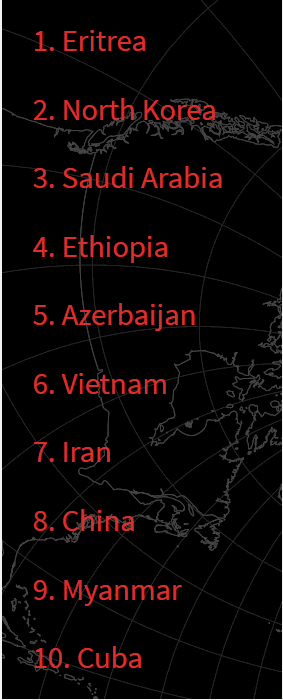Less than two years ago the Castro regime was already criminalizing online content.
Committee to Protect Journalists, August 19, 2021
Cuba passes regulations criminalizing online content, further restricting internet access
Miami, August 19, 2021 — The Committee to Protect Journalists today condemned the enactment of new telecommunications regulations in Cuba that will further censor information on the island, and called for their immediate repeal.
On August 17, the Cuban government enacted new regulations that criminalize the sharing of “false” and “offensive” information online, and grant authorities expanded powers to restrict online speech, according to the text of the regulations and press reports.
“With this new set of vaguely defined internet regulations, Cuban authorities are clearly seeking to bar the country’s citizens from expressing their discontent and accessing information freely online,” said CPJ Latin America and Caribbean Senior Researcher Ana Cristina Núñez. “No matter how many new laws and decrees Cuban authorities pass, however, Cubans have the right to unfiltered and unbiased news. These regulations should be repealed immediately.”
The director of cybersecurity for the Cuban Ministry of Communications, Pablo Domínguez Vásquez, said in a press conference that the new rules empowered the government to document cybersecurity breaches, and said that “when these people [perpetrators] are identified and they are in the country, penalties will be imposed,” according to press reports.
The regulations include Decree 35 on “Telecommunications, Information and Communication Technologies and the Use of the Radioelectric Spectrum,” Resolutions 105, 107, and 108, pertaining to cybersecurity and network usage, and Decree 42, relating to information and communications technologies.
Article 69 of Decree 35 empowers the state telecom monopoly ETECSA to shut down networks and services that transmit information that is false; offensive or harmful to human dignity; against personal and family privacy; against collective safety, general welfare, public morality, or respect for public order; or which constitutes “a means to commit illicit acts.”
Article 53(b) of Decree 42 obliges internet service providers to suspend, in coordination with authorities, the service or terminate the contract of users who transmit such information.
The regulations do not define “false information” or terms such as “collective safety, general welfare and public morality.” The regulations state that they may be applied regardless of other criminal, civil, or administrative actions against suspects for those actions.
Resolution 105 lists online offenses including the “dissemination of false news” and “defamation with an impact on the country’s prestige,” as well as “harmful diffusion,” which it defines as the dissemination of content that “incites demonstrations or other acts that can affect public order.”
That resolution also covers “cyberterrorism,” which it says includes actions whose purpose is to subvert the constitutional order; suppress or seriously destabilize the operation of political institutions, economic, and social structures of the state; or to compel public institutions to do so.
Resolution 105 does not enumerate any specific penalties for those offenses.
“With these rules, the Cuban regime is legalizing internet blackouts, and the possibility of cutting off access to the internet and mobile phone services in a personalized way,” Norges Rodríguez, director of the Cuban digital rights project YucaByte, told CPJ in a phone interview.
Cuban authorities have previously interrupted internet service for the entire island and for specific users, as CPJ has documented. The new regulations follow anti-government protests in July, during which protestors shared videos of the demonstrations online, and the government interrupted access to the internet and social media platforms, as CPJ documented at the time. Authorities have imprisoned people for sharing those videos, according to media reports.
These new regulations add to the government’s control over social media content under Decree 370 of 2019, which bans disseminating “information contrary to the social interest, morals, good manners and integrity of people” on public networks, and which has been used to persecute journalists, as CPJ has documented.
“These new regulations are now being integrated into the strategy of the Cuban regime regarding the internet: on the one hand it opens access to the web, but on the other it accompanies it with legal and technical mechanisms that allow for the implementation of censorship,” Rodríguez said. “This is a farce.”
CPJ emailed the Cuban Ministry of Communications for comment, but did not immediately receive any reply.


















